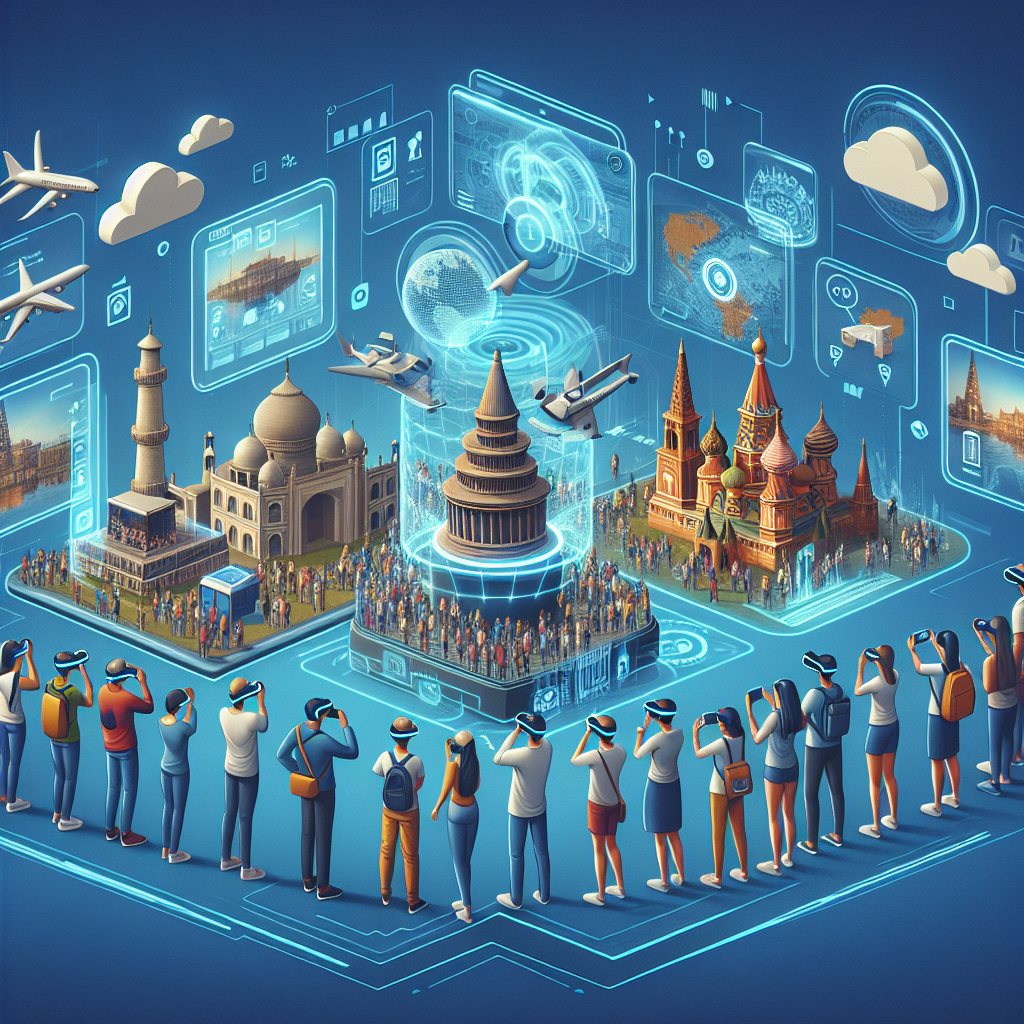Revolutionizing Tourism: How AR is Shaping the Future of Travel
In recent years, Augmented Reality (AR) technology has been making waves in the tourism industry, transforming the way people explore new destinations and interact with their surroundings. By overlaying digital information onto the physical world, AR technology has the potential to enhance the travel experience in ways never before imagined. From virtual tour guides to interactive maps, AR is revolutionizing tourism and shaping the future of travel.
One of the most exciting developments in AR technology is the ability to provide travelers with immersive and interactive experiences. With the use of AR-enabled devices such as smartphones or AR glasses, tourists can access a wealth of information about their surroundings simply by pointing their device at a particular landmark or attraction. For example, instead of relying on a traditional tour guide, travelers can use AR to learn about the history and significance of a monument, museum, or other points of interest in real-time. This not only enhances the educational value of the travel experience but also allows tourists to explore at their own pace and on their own terms.
Additionally, AR technology can help travelers navigate unfamiliar environments more easily. By overlaying AR directions onto the physical world, tourists can easily find their way around a new city or destination without the need for a traditional map or GPS device. This not only simplifies the travel experience but also reduces the risk of getting lost or missing out on key attractions.
AR technology is also being used to create virtual tours of popular destinations, allowing travelers to explore new places from the comfort of their own home. By putting on a pair of AR glasses or using a compatible smartphone, users can virtually visit famous landmarks, museums, and natural wonders in stunning detail. This not only provides a cost-effective and convenient way for travelers to experience new destinations but also opens up opportunities for those who may have physical limitations that prevent them from traveling in person.
Furthermore, AR technology is being integrated into travel planning services, allowing tourists to preview accommodations, restaurants, and activities before they book their trip. By using AR to visualize what a hotel room looks like, what a restaurant’s menu offers, or what activities are available in a particular destination, travelers can make more informed decisions when planning their travels. This level of transparency and detail can help travelers avoid unpleasant surprises and ensure that they have a memorable and enjoyable experience.
As AR technology continues to evolve and become more widely adopted, the possibilities for revolutionizing tourism are endless. From interactive city tours to virtual reality experiences, AR has the potential to transform the way we explore the world and connect with different cultures. By leveraging the power of AR technology, the tourism industry can create more engaging, personalized, and immersive travel experiences that cater to the diverse interests and preferences of today’s travelers.
FAQs about AR in Tourism:
Q: What is Augmented Reality (AR) technology?
A: Augmented Reality (AR) is a technology that overlays digital information onto the physical world, creating a mixed-reality experience for users. By using a compatible device such as a smartphone or AR glasses, users can access additional information about their surroundings in real-time.
Q: How is AR being used in the tourism industry?
A: AR technology is being used in the tourism industry to enhance the travel experience in a variety of ways. For example, travelers can use AR to access information about landmarks and attractions, navigate unfamiliar environments, and even take virtual tours of popular destinations.
Q: What are the benefits of using AR in travel?
A: Using AR in travel can provide travelers with immersive and interactive experiences, help them navigate unfamiliar environments, and allow them to preview accommodations, restaurants, and activities before they book their trip. This can enhance the overall travel experience and make it more personalized and enjoyable.
Q: How can travelers access AR experiences?
A: Travelers can access AR experiences by using compatible devices such as smartphones or AR glasses that are equipped with AR technology. Many travel companies and destinations are also starting to incorporate AR into their services, providing travelers with easy access to AR-enhanced experiences.
